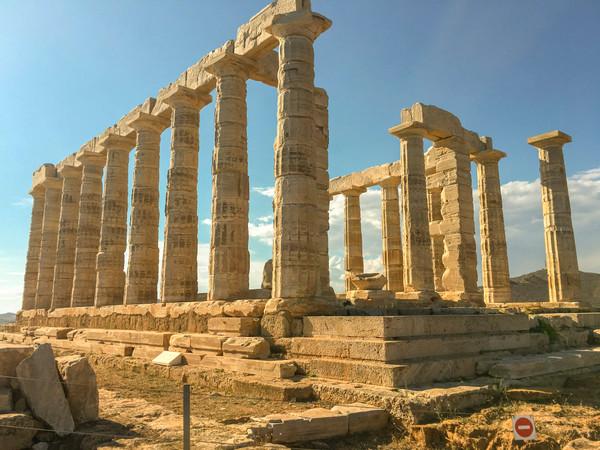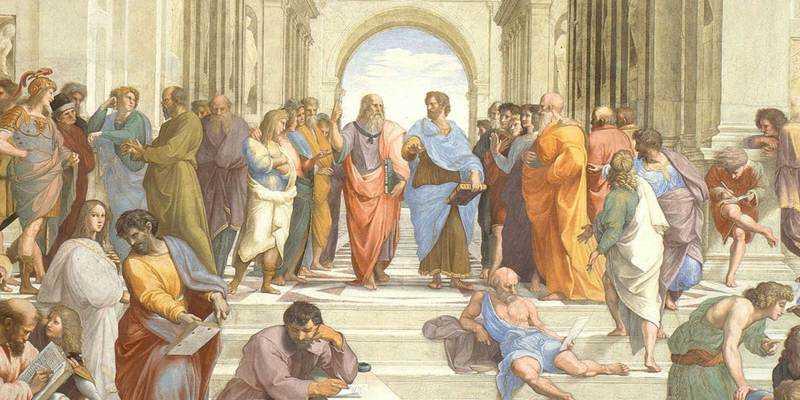What Were the 5 Great Schools of Ancient Greek Philosophy?
Curated from: thoughtco.com
Ideas, facts & insights covering these topics:
6 ideas
·8.91K reads
80
Explore the World's Best Ideas
Join today and uncover 100+ curated journeys from 50+ topics. Unlock access to our mobile app with extensive features.
Ancient Greek Philosophy
- Ancient Greek philosophy extends from as far as the seventh century B.C. up until the beginning of the Roman Empire, in the first century A.D.
- It distinguishes itself from other early forms of philosophical and theological theorizing for its emphasis on reason as opposed to the senses or the emotions.
- During this period five great philosophical traditions originated: the Platonist, the Aristotelian, the Stoic, the Epicurean, and the Skeptic.
- Favorite themes include the principle of reality, the good; the life worth being lived; the distinction between appearance and reality, etc.
368
2.06K reads
Platonism
- Plato (427-347 B.C.) is the first of the central figures of ancient philosophy and he is the earliest author whose work we can read in considerable quantities.
- He has written about nearly all major philosophical issues and is probably most famous for his theory of universals and for his political teachings.
- In Athens, he established a school – the Academy – at the beginning of the fourth century B.C., which remained open until 83 A.D.
311
1.53K reads
Aristotelianism
- Aristotle (384-322B.C.) was a student of Plato and one of the most influential philosophers to date.
- He gave an essential contribution to the development of logic, rhetoric, biology, and – among others – formulated the theories of substance and virtue ethics.
- In 335 B.C. he founded a school in Athens, the Lyceum, which contributed to disseminate his teachings.
307
1.4K reads
Stoicism
- Stoicism originated in Athens with Zeno of Citium, around 300B.C.
- Stoic philosophy is centered on a metaphysical principle: that reality is governed by logos and that what happens is necessary.
- For Stoicism, the goal of human philosophizing is the achievement of a state of absolute tranquility. This is obtained through the progressive education to independence from one’s needs.
- The influence of Stoicism on the development of Western philosophy is hard to overestimate; among its most devoted sympathizers were the Emperor Marcus Aurelius, the economist Hobbes, and the philosopher Descartes.
329
1.46K reads
Epicureanism
- Throughout history, Epicureanism has often been misunderstood as a doctrine preaching indulgence into the most vicious bodily pleasures.
- On the contrary, Epicurus himself was known for his temperate eating habits, and for his moderation. His exhortations were directed towards the cultivation of friendship as well as any activity which most elevates our spirits, such as music, literature, and art.
- Among its metaphysical principles are the theses that our world is one out of many possible worlds and that what happens does so by chance.
316
1.2K reads
Skepticism
- Pyrrho of Elis (c. 360-c. 270 B.C.) is the earliest figure in ancient Greek skepticism on record.
- Probably influenced by the Buddhist tradition of his time, Pyrrho viewed the suspension of judgment as a means to achieve that freedom of disturbance that alone can lead to happiness.
- His goal was to keep each human’s life in a state of perpetual inquiry. Indeed, the mark of skepticism is the suspension of judgment.
- The teachings of ancient skeptics exercised a deep influence on a number of major Western philosophers, including Michel de Montaigne, Renè Descartes and David Hume.
313
1.24K reads
IDEAS CURATED BY
Mark D.'s ideas are part of this journey:
Learn more about personaldevelopment with this collection
Leonardo da Vinci's creative process
How to approach problem-solving like da Vinci
The importance of curiosity and observation
Related collections
Similar ideas
4 ideas
11 ideas
Why Stoicism matters
en.wikipedia.org
52 ideas
The 44 Best & Most Important Stoic Quotes From Seneca, Marcus Aurelius & Co.
fourminutebooks.com
Read & Learn
20x Faster
without
deepstash
with
deepstash
with
deepstash
Personalized microlearning
—
100+ Learning Journeys
—
Access to 200,000+ ideas
—
Access to the mobile app
—
Unlimited idea saving
—
—
Unlimited history
—
—
Unlimited listening to ideas
—
—
Downloading & offline access
—
—
Supercharge your mind with one idea per day
Enter your email and spend 1 minute every day to learn something new.
I agree to receive email updates

